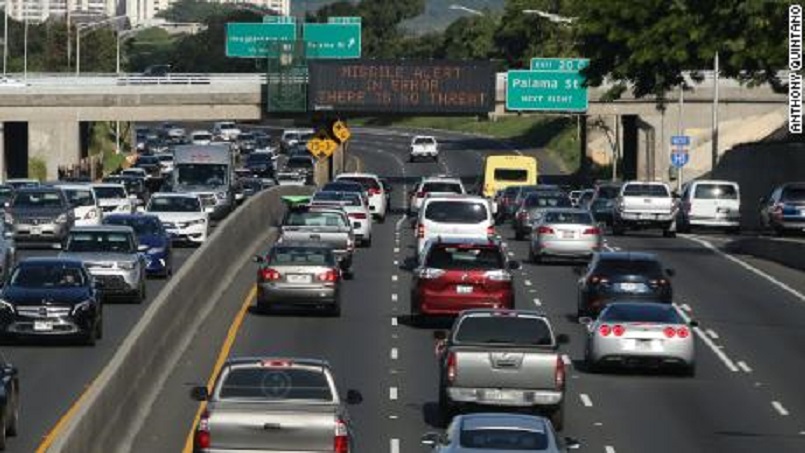
Jocelyn Azbell had just woken up in her Maui hotel Saturday when she was hurried into the hotel's basement to take shelter from an incoming ballistic missile.
"You're thinking, 'Oh my gosh, are we going to die? Is it really a missile (headed) our way, or is it just a test?'" the 24-year-old told CNN. "We really didn't know."
Minutes before, she'd received an ominous alert on her phone.
"BALLISTIC MISSILE THREAT INBOUND TO HAWAII. SEEK IMMEDIATE SHELTER. THIS IS NOT A DRILL."
Azbell, her boyfriend and hundreds of other hotel guests were "herded like cows" into the basement by staff. "People are crying and people obviously were super scared," she said.
Human error turned the island paradise upside down. People crawled under tables in cafes, were ushered into military hangars and huddled around televisions to watch the news for the latest developments.
"It was a mistake made during a standard procedure at the change over of a shift, and an employee pushed the wrong button," Hawaii Gov. David Ige told CNN.
For 20 minutes, Azbell said, they waited. Finally, they were told that the alert was a false alarm, and they were free to resume their day. Azbell said she was "super relieved."
"Hawaii is beautiful," she told CNN. "But it's not where I want to die."
If a missile were launched by North Korea toward Hawaii, the 1.4 million residents of the islands would have only about 20 minutes' notice before it hit. The state's emergency management agency has begun testing the state's nuclear warning siren system. Hawaiians have been told their best plan of action is to remain inside and shelter in place until it's safe to leave.
But many on the islands aren't residents, but tourists. They're visiting and have had no experience preparing for a ballistic missile attack.
Some residents and visitors CNN spoke to said the escalating tensions between the United States and North Korea -- and the war of words between the two leaders -- lent the threat additional credibility in their minds.
They said they were "terrified."
